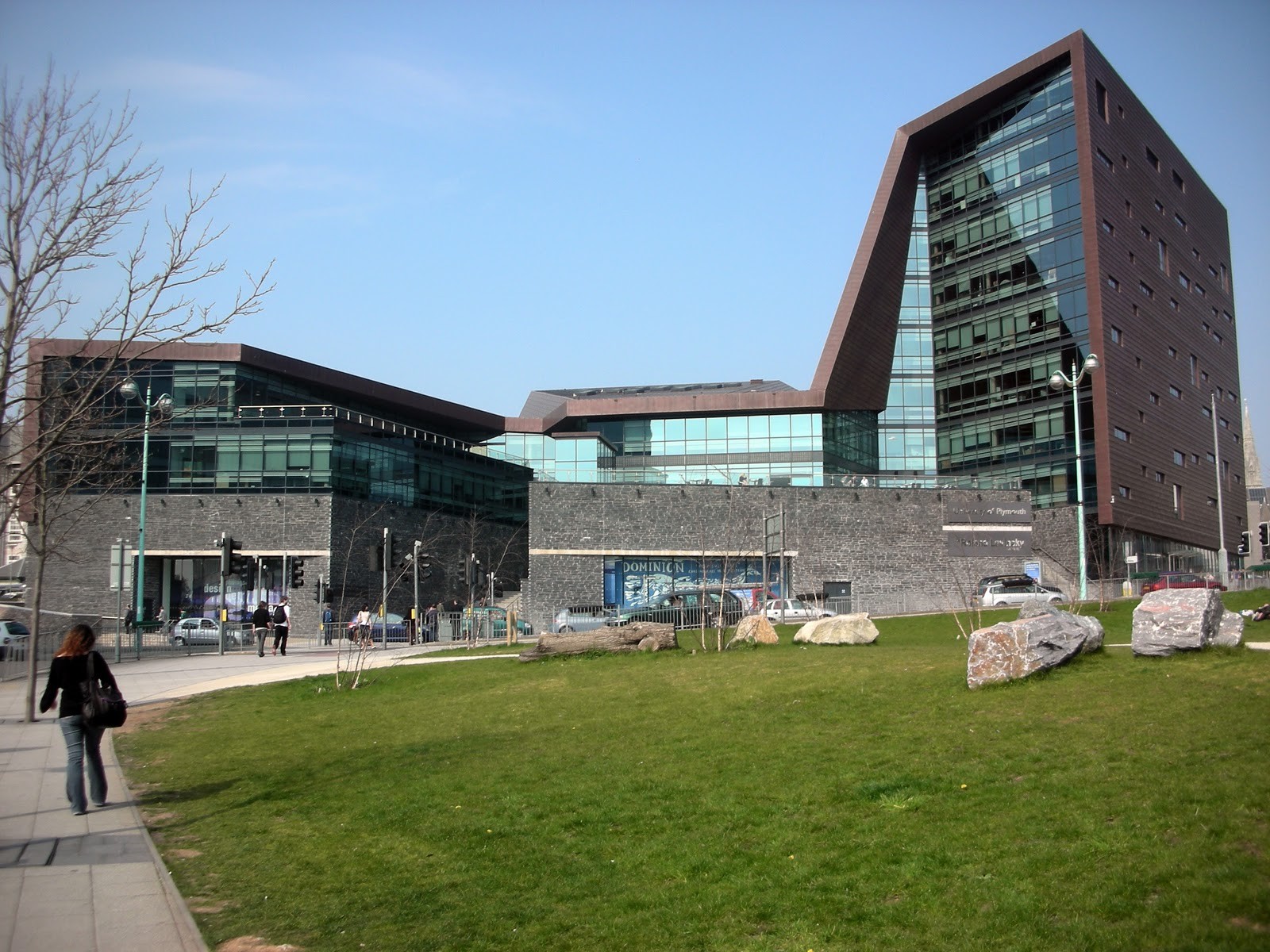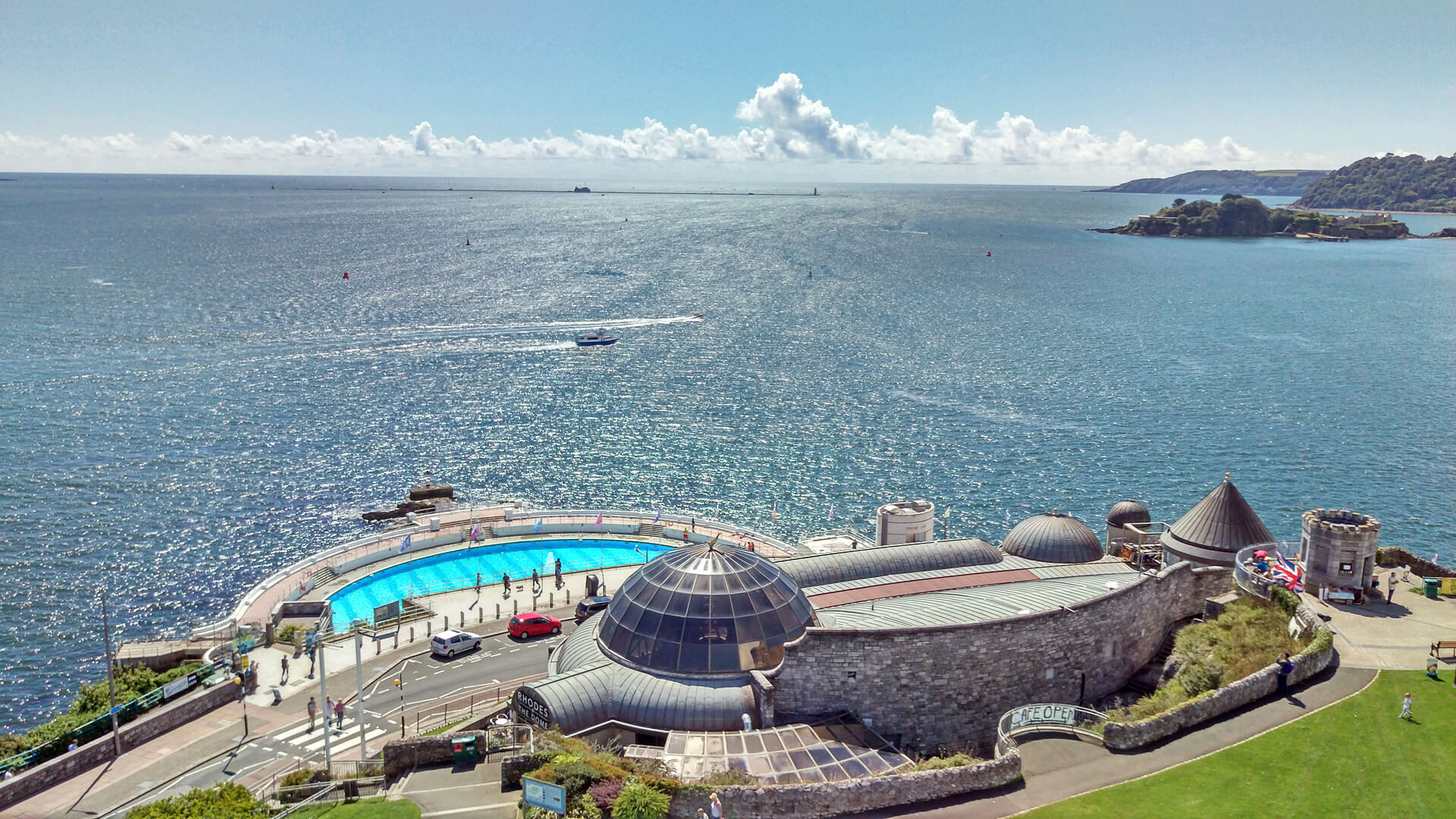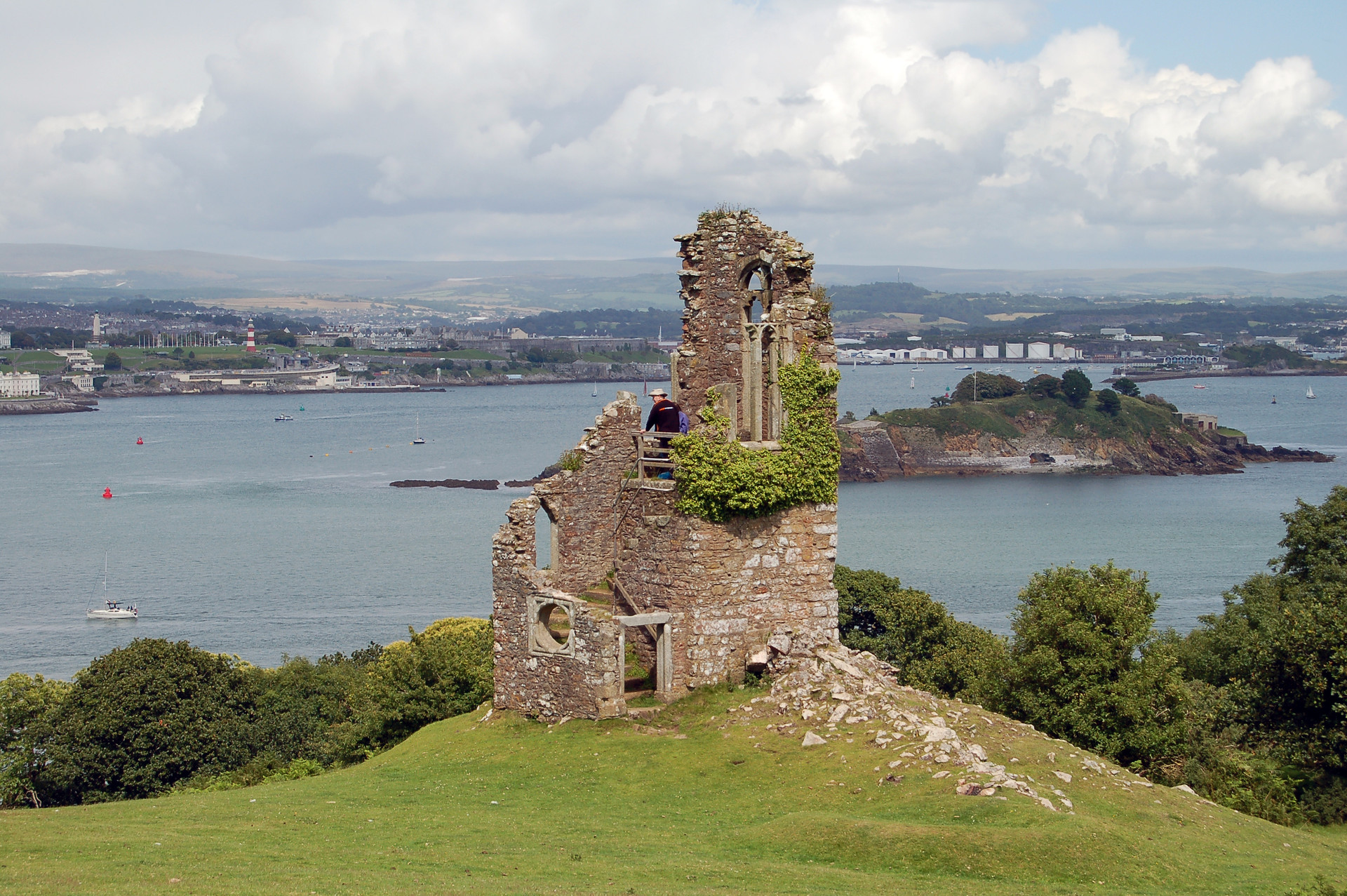My Erasmus Experience in Plymouth, United Kingdom by Marianne
Why did you choose to go to Plymouth, England?
I chose Plymouth because I wanted to study in an anglophone country. North America seemed to involve too much of a complicated process to me but I did hesitate for a long time deciding on Scandinavian countries, where it's also easy to speak English and it's more exotic than England. In the end it was the University of Plymouth's lessons choices and speciality in certain fields that convinced me. I think that it's a factor you shouldn't underestimate when you study, for example a Masters, as you have more resources to write a dissertation.
How long's your stay? What financial aid do you receive?
I was there for 9 months and I received 2 types of financial help. I received 1280€ from the European Union for the Erasmus mobility grant which I received directly from my home university. I also received 1000€ in help from my home region of Pays de la Loire, however not all the regions have the same political orientations, so the student mobility budgets are different.

What's the student vibe like in Plymouth?
Plymouth is a student city! Everything is organised around the campus, which is in the city centre, so it's really practical! The English are really big party-animals! What's really good is that many places do student discount and there are many student events organised.
Would you recommend the city or university to other students?
I would definitely recommend Plymouth and the university to other students. As I was an Erasmus student I didn't have to pay the elevated university fee of the very modest £9, 000 a year! As a university which has many investments, I also had the chance to benefit from all the advantages that the university offers such as a 24/7 university library, computers with very expensive software across campus and available to use any time, lecturers that are more than available for you and who also offer help, very responsive administration staff (which is important for the Erasmus paperwork). The only downside is that there isn't a university canteen like in France and also the English tend to eat lunch on the go, but there are cafés that sell sandwiches everywhere.
The city itself is quite small unless you live in the distant, widespread residential areas away from the city centre. The city centre is doable on foot and the bus network is well developed. As Plymouth was destroyed in the 2nd World War, the city centre is quite ugly, apart from Barbican the old port, which is really cute. I recommend walking as much as you can whilst you're in the South-West of England as it's really beautiful!
What's England's food like?
Traditional English food doesn't have the best reputation, but I fell in love with the cream teas, which is tea served with scones with clotted cream and strawberry jam. Burgers and multicoloured cupcakes are sold everywhere! When cooking for yourself, you can buy the same products as in France. English cuisine is also know for being cosmopolitan and it's really nice to go to a Chinese or Indian restaurant. However, don't go to a French restaurant in England as you'll find 'French' dressings, eggs Benedict and not very good wine! In short, there are lots of things on the menu that they say the French eat, when in fact we do not.

Was it hard to find accommodation in Plymouth?
I chose to live on the university campus. It was very practical because when I arrived in September I wasn't homeless and also the location of the campus is great (in the city centre). However, I don't think that it's the most economical option. I believe that house sharing is the cheapest thing to do; you'll find between 4 and 6 students sharing a house. Unlike Paris, it's very easy to find a shared house, just check the international students groups on social media as there are lots of adverts! I don't know anybody who lived in an apartment by themselves.
What are living costs like in Plymouth?
As Plymouth is in England it's a bit more expensive than France, but Plymouth isn't as expensive as London. Some of the expensive products are fish, vegetables, spirits, clothes (except for Primark) and some of the cheap items include chicken, beer and cider, pay & go sim cards for your mobile phone and bus travel (with companies like Megabus and National Express).
What's it like learning the language there? Did you take part in a language course organised by the university?
You will learn English easily! With communicative lessons, house mates and English or international friends, you learn quickly! I didn't take part in any courses organised by the university nor oral classes.
What's the most economical way to get to Plymouth from your home town?
The most economical way to get to Plymouth from Nantes is by driving to Roscoff, or catching a train there but you have to change a few times, and then getting the 6 hour ferry directly to Plymouth. From summer to October you can also fly with Easybe from Rennes to Exeter, or from Paris to Bristol all year long with EasyJet.
Where do you recommend to go out in Plymouth?
There is a multitude of places where you can go out such as these pubs, clubs and bars:
- North Hill's Mousetrap (especially Tuesdays and Thursdays when it's £1 a pint
- Cuba
- Bang Bang
- Bac Bar
- Fresher and Professor
- Barbican
- Oceana
- C103 and more!
And to eat in Plymouth? What are your favourite places?
I recommend going to the Caffeine Club near the university for 24/7 food, Platters for fish and chips and the Flower Café for delicious cake and cream teas!

And what cultural places do you recommend going to see?
For a trip to somewhere cultural, I recommend going to:
- The Plymouth City Museum and Art Gallery which is opposite the university's main campus and is free for students.
- There is also the National Marine Aquarium,
- Plymouth Gin Distillery,
- Barbican,
- Plymouth Hoe,
- Smeaton's Tower,
- Mount Edgecumbe (the piece of land opposite The Hoe).
And of course, go travel outside the city!
Any advice for future students going to Plymouth?
You only live once!
Photo gallery
Content available in other languages
Share your Erasmus Experience in Plymouth!
If you know Plymouth as native, traveler or as exchange student... share your opinion on Plymouth! Rate different characteristics and share your experience.
Add experience →


















Comments (0 comments)